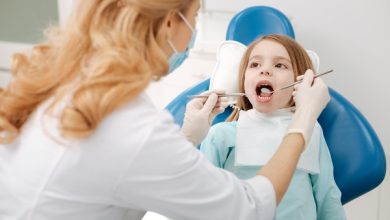How Diet And Nutrition Impact Your Oral Health

Your diet directly affects your oral health. The choices you make about what you eat can either strengthen or harm your teeth and gums. Sugar and acidic foods can damage enamel and lead to cavities. However, calcium-rich foods like milk and cheese promote strong teeth. Eating crunchy fruits and vegetables can also help clean your teeth and stimulate your gums. Drinking water is essential for keeping your mouth clean by washing away food particles. Ignoring proper nutrition can lead to oral issues that might require emergency dentistry in Hoffman estates. Pay attention to your meals to prevent such urgent situations. A balanced diet supports not only your body but also your smile. The right foods can prevent decay and keep your teeth healthy. Making informed food choices helps you maintain good oral health and boosts your overall well-being. Stay mindful of your diet for a brighter, healthier smile.
The Impact of Sugar and Acids
Sugar is one of the main culprits of tooth decay. When you consume sugary foods and drinks, bacteria in your mouth produce acid as they break down the sugar. This acid can erode tooth enamel, leading to cavities. Acidic foods and drinks, like soda and citrus fruits, can also weaken enamel. It’s crucial to limit sugary and acidic consumables. Opt for healthier alternatives when possible and rinse your mouth with water after consuming such items to minimize their harmful effects.
Benefits of Calcium and Phosphorus
Calcium and phosphorus are key minerals for oral health. They help rebuild and maintain tooth enamel, keeping your teeth strong and resistant to decay. Foods high in calcium and phosphorus include dairy products, nuts, and certain fish. Incorporating these into your diet can enhance the resilience of your teeth. Consider choosing snacks that are rich in these minerals to support your oral well-being.
Crunchy Foods that Clean
Crunchy fruits and vegetables like apples, carrots, and celery can act as natural toothbrushes. Their texture helps scrub away food particles and plaque. These foods also stimulate saliva production, which naturally cleanses the mouth. Including these in your meals can aid in maintaining cleanliness and freshness in your oral cavity.
Hydration and Oral Health
Water plays a crucial role in oral hygiene. It helps wash away food particles and keeps the mouth moist, reducing the risk of decay. Drinking water after meals can significantly lower the chance of developing cavities. Moreover, it helps dilute acids produced by bacteria, protecting enamel. Make it a habit to drink plenty of water throughout the day to support your oral health.
Table: Foods and Their Oral Health Benefits
| Food Type | Benefit for Oral Health |
|---|---|
| Dairy Products | Rich in calcium; strengthens enamel |
| Crunchy Vegetables | Natural cleaning action; stimulates gums |
| Water | Washes away food particles; reduces acidity |
| Nuts | High in phosphorus; supports enamel |
| Leafy Greens | Rich in vitamins; promotes gum health |
Avoiding Oral Issues
Being proactive about diet choices can prevent the need for urgent dental care. Regular visits to the dentist, along with a healthy diet, can keep your mouth in top condition. The American Dental Association recommends limiting sugary snacks and maintaining a balanced diet for optimal oral health. For more details, visit the American Dental Association’s guidelines.
Conclusion
Your food choices play a pivotal role in determining your oral health. By focusing on nutrient-rich foods, you can prevent decay and boost gum health. Regularly consuming water, calcium, and crunchy fruits and vegetables will sustain your oral hygiene. Awareness and proactive choices can protect your teeth and prevent future issues. Embrace a diet that supports your overall well-being and keeps your smile radiant.



